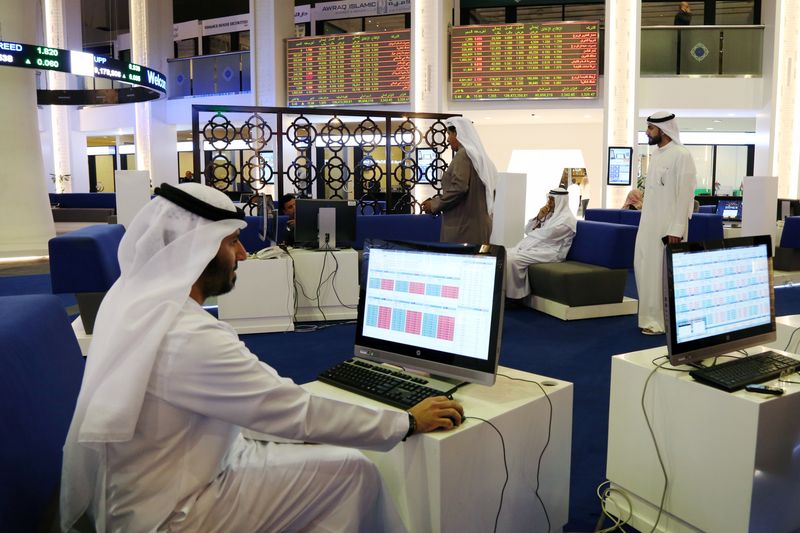By Ateeq Shariff
(Reuters) - Most stock markets in the Gulf ended lower on Wednesday, extending losses from the previous session, as U.S. Federal Reserve officials reiterated interest rates are likely to stay higher for longer.
Top U.S. central bank officials including Federal Reserve Chair Jerome Powell backed away on Tuesday from providing any guidance on when interest rates may be cut, saying instead that monetary policy needs to be restrictive for longer and further, dashing investor hopes for meaningful reductions in borrowing costs this year.
Most Gulf currencies are pegged to the dollar and any monetary policy change in the United States is usually mimicked by Saudi Arabia, the United Arab Emirates and Qatar.
Saudi Arabia's benchmark index dropped 0.3%, hit by a 1.8% fall in the country's biggest lender Saudi National Bank.
Meanwhile, The kingdom's crude oil exports in February edged up to 6.317 million barrels per day (bpd) from 6.297 million bpd in January, data from the Joint Organizations Data Initiative (JODI) showed on Wednesday.
Dubai's main share index dropped 0.3%, weighed down by a 1.1% fall in toll operator Salik Co.
In Abu Dhabi, the index eased 0.3%.
Tensions in the Middle East are still running high. Israel vowed to respond to Iran's weekend attack despite international calls for restraint.
Oil prices - a catalyst for the Gulf's financial markets - slipped for a third straight session as likely higher U.S. commercial inventories weighed, while weaker economic data from China and dimmed prospects of interest rate cuts stoked worries about global demand.
The Qatari benchmark finished flat.
Outside the Gulf, Egypt's blue-chip index gained 0.9%, with Talaat Mostafa Holding rising 2.5%.
SAUDI ARABIA fell 0.3% to 12,466
ABU DHABI lost 0.3% to 9,165
DUBAI down 0.3% to 4,173
QATAR was flat at 9,853
EGYPT rose 0.9% to 29,668
BAHRAIN dropped 0.7% to 2,027

OMAN fell 0.3% to 4,723
KUWAIT declined 0.5% to 7,530